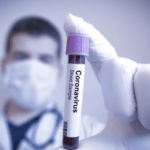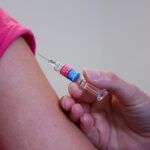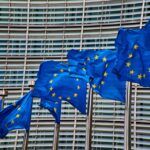Although the vaccination process is progressing steadily in all EU countries, the pace of vaccination is uneven in the different European territories, with some countries being more efficient in vaccinating their population.
As of July 30, 39.21% of the EU/EEA population had received the full course of one of the EU-licensed vaccines and had therefore been immunized against COVID-19.
The countries which, to date, have vaccinated a higher percentage of their citizens are: Malta (66.5 % of its population vaccinated), Iceland (62.4 %), Hungary (59.7 %), Cyprus (48.1 %) and Ireland (43.4 %).
In terms of population, the most populated countries with the highest percentage of vaccinated people are the Netherlands (42.7 %), Germany (42.3 %), Poland (42 %), Spain (41.5 %), France (37.5 %) and Italy (35.1 %).
The countries in which the rate of vaccination is progressing more slowly are: Bulgaria 14.3 %, Finland 22 %, Romania 28.6 %, Latvia 30.8 % and Croatia 32.2 %.
| Country | % population with first dose | % population with complete pattern | Total population |
| Germany | 64,2 | 42,3 | 83.166.711 |
| France | 63,6 | 37,5 | 67.320.216 |
| Italy | 65,9 | 35,1 | 59.641.488 |
| Spain | 63,6 | 41,5 | 47.332.614 |
| Poland | 54,2 | 42 | 37.958.138 |
| The Netherlands | 71,4 | 42,7 | 17.407.585 |
| Belgium | 76,2 | 42,3 | 11.522.440 |
| Greece | 53,2 | 40,5 | 10.718.565 |
| Czech Republic | 56,6 | 34,7 | 10.693.939 |
| Sweden | 58,1 | 36,6 | 10.327.589 |
| Portugal | 62,2 | 38,4 | 10.295.909 |
| Hungary | 67,4 | 59,7 | 9.769.526 |
| Austria | 63,8 | 40,1 | 8.901.064 |
| Bulgaria | 16,4 | 14,3 | 6.951.482 |
| Denmark | 66,7 | 38,2 | 5.822.763 |
| Finland | 71,6 | 22 | 5.525.292 |
| Slovakia | 43,2 | 32,6 | 5.457.873 |
| Norway | 56,6 | 33 | 5.367.580 |
| Rumania | 30 | 28,6 | 5.176.010 |
| Ireland | 66 | 43,4 | 4.964.440 |
| Croatia | 43,7 | 32,2 | 4.085.165 |
| Lithuania | 51,3 | 39,7 | 2.794.090 |
| Slovenia | 46,7 | 37,3 | 2.095.861 |
| Latvia | 35,8 | 30,8 | 1.907.675 |
| Estonia | 50,4 | 37,1 | 1.328.889 |
| Cyprus | 62,9 | 48,1 | 888.005 |
| Luxembourg | 61,5 | 42,8 | 626.108 |
| Malta | 71,6 | 66,5 | 514.564 |
| Iceland | 88 | 62,4 | 364.134 |
| Liechtenstein | 57,5 | 33,8 | 38.747 |
| EU/EEA average | 58,01 | 39,21 |
Digital COVID Certificate
On March 17, 2021, the Commission adopted a legislative proposal establishing a common framework for an EU digital COVID certificate including vaccination, testing and recovery. This is an EU-wide approach for the issuance, verification and acceptance of certificates to facilitate free movement within the Union, based on strict respect for non-discrimination and the fundamental rights of EU citizenship. On July 1, 2021, the EU Digital COVID Certificate Regulation entered into force.
An EU Digital COVID Certificate is a digital accreditation that a person:
- has been vaccinated against COVID-19, or.
- has been tested with a negative result, or
- has recovered from COVID-19.
Context
Vaccination against COVID-19 started on December 27, 2020 across the European Union, in a moment of unity.
To date, 4 safe and effective vaccines against COVID-19 have been licensed for use in the EU, following positive scientific recommendations from the European Medicines Agency:
BioNTech-Pfizer: On December 21, 2020, the European Commission granted conditional marketing authorization to the COVID-19 vaccine developed by BioNTech and Pfizer, thus becoming the first COVID-19 vaccine licensed in the EU.
Moderna: On January 6, 2021, the European Commission granted conditional marketing authorization to the COVID-19 vaccine developed by Moderna, which thus became the second COVID-19 vaccine licensed in the EU.
AstraZeneca: On January 29, 2021, the European Commission granted conditional marketing authorization to the COVID-19 vaccine developed by AstraZeneca, which thus became the third COVID-19 vaccine licensed in the EU.
Johnson & Johnson: On March 11, 2021, the European Commission granted a conditional marketing authorization to the COVID-19 vaccine developed by Janssen Pharmaceutica NV, which thus became the fourth COVID-19 vaccine licensed in the EU.





Leave a Reply